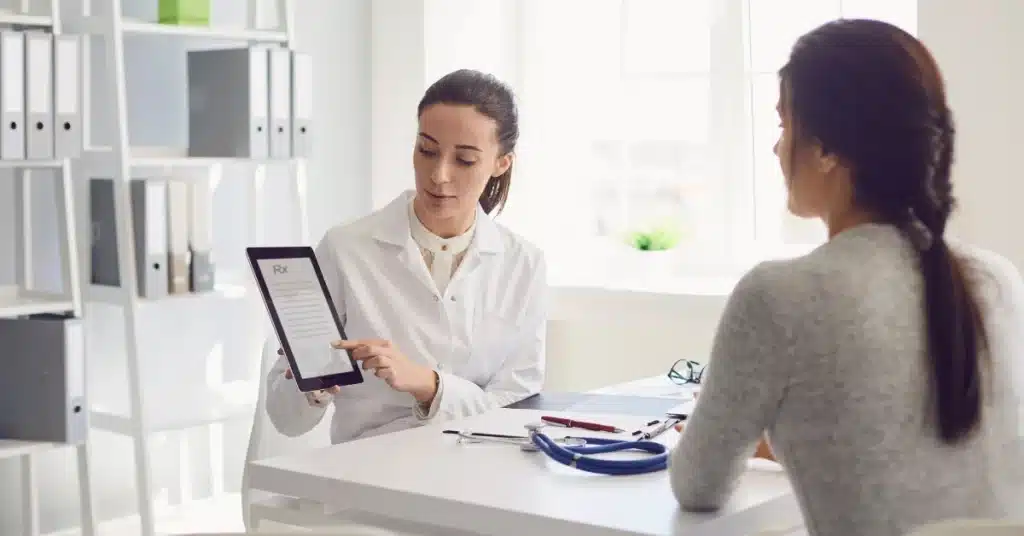Can You Eat Eggs While Taking Levofloxacin? Interactions and Considerations
Levofloxacin is a common antibiotic used to treat many types of bacterial infections.
This drug belongs to a class of antibiotics called Fluoroquinolones.
But when you take antibiotics, some people worry that certain foods might interact with this medication and cause problems.
One question that often arises is, can you eat eggs while taking Levofloxacin?
In this article, we’ll look into this question and give you the facts to help you decide what to eat when you are on this medicine.
Egg and Levofloxacin interaction
Eggs are a nutritious and versatile food source, providing essential proteins, vitamins, and minerals.
They are crucial in many people’s diets and offer numerous health benefits.
When it comes to Levofloxacin, there is generally no direct interaction between the antibiotic and eggs.
Levofloxacin is primarily absorbed and metabolized in the gastrointestinal tract.
While eggs are broken down in the stomach and move into the small intestine.
There is no evidence to suggest that consuming eggs would interfere with Levofloxacin’s absorption or effectiveness.
However, it’s essential to remember that individual reactions to medications and foods can vary.
Timing matters
If you prefer to take Levofloxacin with food, you can choose to have your eggs at the same time.
For optimal results, it is a good practice to take Levofloxacin at least 2 hours before or 2 hours after a meal, including eggs.
This timing helps ensure the antibiotic can effectively fight the infection.
Foods to avoid while taking Levofloxacin

While eggs themselves are not a concern, it’s essential to be aware of certain foods that can interfere with the absorption of Levofloxacin.
Dairy items like milk and yogurt should be avoided while taking Levofloxacin.
Foods that are high in minerals like calcium, iron, and zinc can affectâs medication absorption rate and reduce its effectiveness.
Eggs, however, are not that high in these minerals and are unlikely to affect Levofloxacin absorption.
Therefore, it’s generally safe to consume eggs while taking this medication.
Considerations while taking Levofloxacin
Here are some important things to keep in mind while taking Levofloxacin:
Take as prescribed
Always take Levofloxacin exactly as prescribed by your healthcare provider.
Follow the recommended dosage and schedule to ensure the best treatment outcomes.
Complete the course
Even if you start feeling better before you finish the medication, completing the entire prescribed course is essential.
Stopping antibiotics early can cause antibiotic resistance and a recurrence of the infection.
Follow dietary advice
If your doctor provides specific dietary instructions related to Levofloxacin or any other medication, be sure to follow them.
These recommendations are typically made to optimize the medication’s absorption and effectiveness.
Have a balanced diet
Consuming eggs or any food in moderation is vital as part of a well-balanced diet.
Overconsumption of any single food item can lead to imbalances in your diet.
Drinking enough water is important while taking Levofloxacin or any antibiotic.
It can help alleviate the risk of side effects like kidney problems.
Monitor for side effects
Like all medications, Levofloxacin can have side effects.
Common side effects are diarrhea, headache, nausea, and dizziness.
In rare cases, more serious side effects can occur, such as fast heartbeat, liver injury, and allergic reactions.
Seek immediate medical attention if you experience any unusual symptoms, such as difficulty breathing and yellowing of the skin.
Consult with medical experts

It is always better to consult your doctor regarding any specific dietary concerns while taking Levofloxacin.
They can provide personalized guidance based on your medical history and the specific details of your treatment.
While eggs themselves are not a concern, monitoring your body’s response to Levofloxacin is important.
Conclusion
Eating eggs while taking Levofloxacin is generally considered safe.
Levofloxacin, an effective antibiotic for bacterial infections, typically does not interact significantly with eggs.
This is because Levofloxacin is primarily absorbed and processed in the gastrointestinal tract, while eggs are digested separately.
However, individual responses to medications and foods can vary.
To optimize your treatment, taking Levofloxacin at least two hours before or after a meal containing eggs is advisable.
It is vital to be cautious of foods rich in minerals, like zinc, calcium, and zinc, which can interfere with Levofloxacin absorption.
Always follow your doctor’s advice, and stay hydrated during treatment for the best outcomes.
Frequently Asked Questions
Can you eat eggs while taking Levofloxacin?
Yes, you can usually eat eggs while taking Levofloxacin. Eggs don’t usually affect how Levofloxacin works. But remember, taking Levofloxacin two hours before or after eating eggs is best if you prefer to take it with food.
Does egg affect Levofloxacin effectiveness?
Eggs usually don’t affect Levofloxacin’s effectiveness. The drug works mainly in the stomach, and eggs get broken down in the stomach and move down to the small intestine. However, an individual’s reactions to medicine may vary.
What foods should I avoid while taking Levofloxacin?
While taking Levofloxacin, avoiding foods high in minerals like calcium, iron, and zinc is better. Dairy products like yogurt and milk should also be avoided. These foods might interfere with how the medicine is absorbed.
Are there any side effects of taking Levofloxacin?
Yes, Levofloxacin can cause side effects, including diarrhea, vomiting, nausea, and allergies. These side effects can vary from person to person. Contact medical experts immediately if you experience unusual symptoms or have difficulty breathing.
WowRx uses only high-quality sources while writing our articles. Please read our content information policy to know more about how we keep our content reliable and trustworthy.






